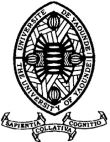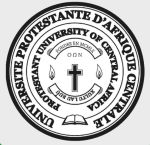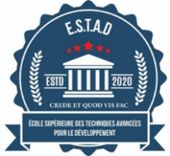Medical Secrecy in the Context of the Response Against the Covid-19 Health Crisis in Cameroon: Analysis From the United#Covid-19
Le Secret Médical dans le Contexte de la Réponse à la Crise Sanitaire du COVID-19 au Cameroun : Analyse de United#Covid-19
DOI:
https://doi.org/10.5281/hra.v2i5.5643Keywords:
Medical secrecy, COVID-19, legislation, CameroonAbstract
ABSTRACT
The medical secrecy is the cornerstone of the patient-caregiver relationship. It is a commitment taken by the caregiver (physician, nurse, pharmacist, etc.) towards the patient, that imposes him/her to secrecy regarding all patient’s information seen, heard, or discovered in the course of his/her professional practice. It is regulated by the professional codes of ethics and the penal code. The medical secrecy, therefore, lies at the crossroads of health, law, morals and some aspects of society. It has been progressively questioned with the advent of digitalization and, in some countries, with the interests of transparency. In the context of the covid-19 pandemic, the medical secrecy is in jeopardy. Indeed, for the sake of the principles of public health and general safety, many cases of violation of the medical secrecy, either by health professionals or administrative authorities, have been reported. In this article, we discuss the impact of the pandemic on this crucial element of the patient-caregiver relationship, and we suggest professional, social and legal solutions to help preserve it.
RÉSUMÉ
Le secret médical est la pierre angulaire de la relation patient-soignant. Il s'agit d'un engagement pris par le soignant (médecin, infirmier, pharmacien, etc...) à l'égard du patient, qui lui impose de garder le secret sur toutes les informations du patient vues, entendues ou découvertes dans le cadre de son exercice professionnel. Il est réglementé par les codes de déontologie et le code pénal. Le secret médical se situe donc au carrefour de la santé, du droit, de la morale et de certains aspects de la société. Il a été progressivement remis en question avec l'avènement de la numérisation et, dans certains pays, avec les intérêts de la transparence. Dans le contexte de la pandémie de COVID-19, le secret médical est en danger. En effet, au nom des principes de santé publique et de sécurité générale, de nombreux cas de violation du secret médical, soit par des professionnels de santé, soit par des autorités administratives, ont été rapportés. Dans cet article, nous discutons de l'impact de la pandémie sur cet élément crucial de la relation patient-soignant, et nous proposons des solutions professionnelles, sociales et juridiques pour aider à le préserver.
References
Presidency of Republic of Cameroon. Cameroon penal codes. Article 310. 2016/007 2016. Available on: https://www.wipo.int/edocs/lexdocs/laws/fr/cm/cm014fr.pdf
The President of Republic of Cameroon. Décret portant Code de Déontologie des médecins. n° 83-166, 1983. Available on: https://www.medcamer.org/wp-content/uploads/2011/01/CODEONTOLOGIECAMEROUN.pdf
WHO Coronavirus Disease (COVID-19) Dashboard. https://covid19.who.int. Accessed on October 6th, 2021.
Boenisch G. Jean-Marc Manach, La vie privée, un problème de vieux cons ?. Limoges, Éd. Fyp, coll. Présence, 2010. Quest Commun. Presses universitaires de Nancy; 2011;(19):397‑9.
Ziegler J. Mort programmée du secret bancaire suisse. Monde Dipl. 2001;12. Available on : https://www.monde-diplomatique.fr/2001/02/ZIEGLER/1879
Kahn A. Le secret médical : d’Hippocrate à internet. Recl Dalloz.2009;185(39):2623.
Benghozi P-J. L’économie numérique : une économie disruptive ? Pierre-Jean Benghozi. Cah Fr. 2016;(392):7.
World Health Organization. Règlement sanitaire international (2005) Brève introduction à son application dans le cadre de la législation nationale. Geneva, Switzerland: Organisation Mondiale de la Santé; 2009.p. 1‑10. Report No.: WHO/HSE/IHR/2009.2. Available on: https://www.who.int/ihr/legal_issues/Brief_introduction_to_legislative_implementation_fr.pdf?ua=1
Ekong I, Chukwu E, Chukwu M. COVID-19 Mobile Positioning Data Contact Tracing and Patient Privacy Regulations: Exploratory Search of Global Response Strategies and the Use of Digital Tools in Nigeria. JMIR MHealth UHealth. 27 2020;8(4):e19139.
Gelblat A, Marguet L. État d’urgence sanitaire : la doctrine dans tous ses états ? Rev Droits L’homme Rev Cent Rech D’études Sur Droits Fondam. Centre de recherches et d’études sur les droits fondamentaux (CREDOF); 2020; Available on: https://journals.openedition.org/revdh/9066
Beaud O, Guérin Bargues C. L’état d’urgence sanitaire : était-il judicieux de créer un nouveau régime d’exception ? Recl Dalloz. 2020;981. Avalaible on: http://www.recht-als-kultur.de/en/news/
Truchet D. Droit de la santé publique. 9ème édition. Dalloz; 2016. 320 p. Available on : https://www.librairiedalloz.fr/livre/9782247161744-droit-de-la-sante-publique-9e-edition-didier-truchet/
Mattatia F. Le cadre juridique du traitement des données de santé. In: Poirot-Mazères I, éditeur. Santé, numérique et droit-s. Toulouse: Presses de l’Université Toulouse 1 Capitole; 2019. p. 221‑41. Available on: https://books.openedition.org/putc/4409
Cobos Manuel I, Jackson-Perry D, Courvoisier C, Bluntschli C, Carel S, Muggli E, et al. Stigma and HIV: relevant for everyone. Rev Med Suisse. 2020;16(690):744‑8.
Desgens-Pasanau G. Traçage des données mobiles : ne sacrifions pas la protection de nos données sur l’autel de la crise sanitaire. Le Club des Juristes. 2020. Available on: https://www.leclubdesjuristes.com/blog-du-coronavirus/libres-propos/tracage-des-donnees-mobiles-ne-sacrifions-pas-la-protection-de-nos-donnees-sur-lautel-de-la-crise-sanitaire/
Dufourmantelle A. Défense du secret. Paris: Éd. Payot & Rivages; 2015. Available on: http://excerpts.numilog.com/books/9782228913294.pdf
Martin Agudelo L. Secret médical et Covid-19 : le CNOM satisfait des garanties données par le gouvernement. Available on : https://www.larevuedupraticien.fr/article/secret-medical-et-covid-19-le-cnom-satisfait-des-garanties-donnees-par-le-gouvernement
Nemedeu R. Le respect du secret médical, des droits fondamentaux des malades, des droits des défunts à l’épreuve du Covid 19. Quotid Jour. 2020;(3164):9. Available on: https://www.lequotidienlejour.info/pr-robert-nemedeu-les-defunts-ont-des-droits/.
Downloads
Published
How to Cite
Issue
Section
License
Authors who publish with this journal agree to the following terms:
- Authors retain copyright and grant the journal right of first publication with the work simultaneously licensed under a Creative Commons Attribution License CC BY-NC-ND 4.0 that allows others to share the work with an acknowledgement of the work's authorship and initial publication in this journal.
- Authors are able to enter into separate, additional contractual arrangements for the non-exclusive distribution of the journal's published version of the work (e.g., post it to an institutional repository or publish it in a book), with an acknowledgement of its initial publication in this journal.
- Authors are permitted and encouraged to post their work online (e.g., in institutional repositories or on their website) prior to and during the submission process, as it can lead to productive exchanges, as well as earlier and greater citation of published work










